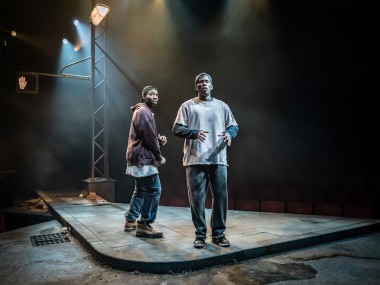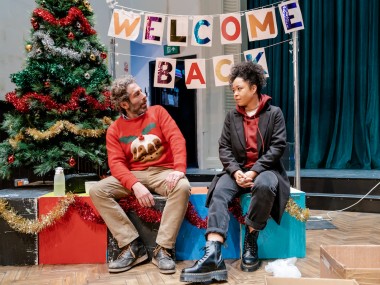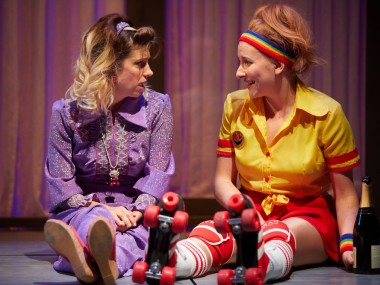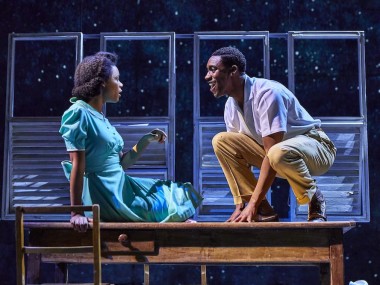The Lonely Londoners, Kiln Theatre
Thursday 16th January 2025
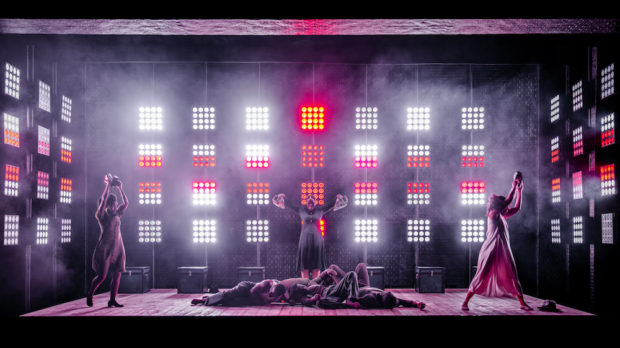
Is resilience the most powerful character trait? When you think about the suffering of the Windrush Generation, migrants to the UK in the 1950s, it is their sheer staying power that is immediately obvious. As the son of a Jamaican mother, who came here decades ago, Roy Williams wrote his first mid-1990s plays about her experiences, then moved on to examine issues of race in contemporary Britain. Now he revisits her generation in his adaptation of Sam Selvon’s classic 1956 novel, The Lonely Londoners, which transfers from the Jermyn Street Theatre, where it opened about a year ago.
This version of the episodic novel focuses on Moses, a Trinidadian who has been in London for 10 years and is the altruistic go-to man for new arrivals, like the confident Galahad, who later gets into fights because of his relationship with Daisy, a white woman. Moses’s friends are represented by the frequently unemployed Lewis, who brings over his wife, Agnes, and his mother, Tanty, yet cannot really relate to them in this cold new land, and Big City, a hustler who is drawn into criminality when the pervading racism of the host country sabotages his efforts at entrepreneurship.
While Moses appears as the calm centre of the sometimes tense relationships between the men, when banter turns into aggression, he has his own demons. Years ago he had a relationship with Christina, who he has left behind, but is haunted by. The play explores black masculinity, showing not only the resilience and determination of the men, but also their moments of despair: in one episode Galahad curses his blackness, the reason — he thinks — for the racism he has to endure. While they frequent white sex workers in the capital’s parks, their relationships with wives and girlfriends are troubled. As immigrants to a hostile “Mother Country”, they have to struggle to survive.
So the men find themselves in a cold foreign land, often hungry (eating pigeons), and they all grow to understand how the experience has changed their characters. The play shows how they not only have to adapt to their new home, but actively have to create a new place for themselves. As Moses says to his “fellars”: “We are lonely, yes. But we are not alone.” Male comradeship is their survival strategy. Women come second. The men’s masculinity is their strength, but is also shown to occasionally be toxic. In the meantime, they spend their Sundays “liming”, hanging out and chatting. Joshing and joking.
Williams’s pitch-perfect adaptation preserves much of the patois of the original, and includes monologues in which the characters address unseen others, as well as dialogues and arguments. The conflicts of the story, between Moses and Christina, and between Lewis and Agnes and Tanty, come across strongly, and the familiar tropes of the Windrush Generation (streets paved with gold, and the racist slogan “No Irish, no blacks, no dogs”) are included among much more original material, especially the humorous passages (Big City keeps mangling the names of boroughs and streets) and the sense of London as hostile, but fascinating.
Balancing the traumas faced by the men due to the relentless racism of white society with the sense of joy of being in a huge metropolis, Williams gives an unsentimental picture of a moment in the creation of a multicultural Britain. His tribute to the resilience of his mother’s generation shows the strength of both male and female determination to survive, and to succeed. The play, like the original short novel, is a kind of love letter to London, whose immensity and opportunities are celebrated, despite the fact that the streets are coldly unfriendly, in a way reminiscent of Thomas De Quincey’s characterization of them as a “stonyhearted stepmother”.
Ebenezer Bamgboye’s vivid and energetic production runs for about two hours without a break, which gives the stories an unbroken coherence and continuity. His cast is the same as at Jermyn Street, with the exception of Solomon Israel, whose cool but conscience-stricken Moses holds everything together. Once again, Tobi Bakare’s passionate Lewis, Romario Simpson’s openhearted Galahad and Gilbert Kyem Jr’s ambitious Big City give committed and detailed performances, while the slightly marginalized women are also completely convincing: Shannon Hayes’s dignified Agnes, Carol Moses’s powerful Tanty and Aimée Powell’s ethereal Christina.
Designer Laura Ann Price’s bare set, with blue boxes for furnishing, helps the fluidity of the piece, and movement director Nevena Stojkov animates the action with slo-mo sequences, moments of dance, all helping to lift the stage picture from the banal to the beautiful. Although I think some of Elliot Griggs’s lighting, which flashes up London postcodes, blazes bright white or fearsome red, is often a bit overwhelming, and I would have preferred more 1950s-style music, the play delivers its stories with huge empathy and theatrical precision. Not every sequence works entirely, but who cares? This is a brilliant adaptation of a brilliant book.
This review first appeared on The Theatre Times

